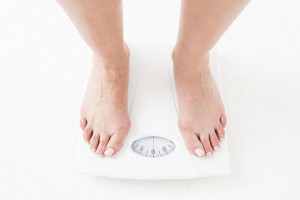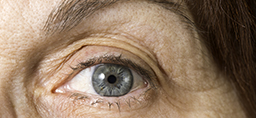
Menopause is often referred to as a “perfect storm” where all the odd changes and symptoms women experience collide.
This collision creates insulin resistance resulting in increased belly fat.
At the Spectrum Health Medical Group Midlife and Menopause Clinic, we have an entire team to help women with menopause symptoms, including weight gain.
One of our team members, Irene Franowicz, is a registered dietician who practices what she preaches. She encourages healthy eating and cooking and she teaches others how to prepare healthy foods in her weight management program, Eating the Mediterranean Way with Low Glycemic Carbohydrates.
Even better, Irene demonstrates techniques to counteract the effects of aging and menopause.
Right before and during menopause, one of the most common complaints women experience is weight gain. Many of my patients say, “I am doing the same things with my diet and activity level, but I keep gaining weight.”
One of my patients—we’ll call her Sarah—has experiencing this. At age 49, Sarah struggled to stop gaining weight. She knew she already had a bit of a weight problem, and at age 45 she noticed it was becoming more difficult to lose weight.
Busy juggling family and work, Sarah would often eat on the run as she and her family headed out the door to soccer games, school events and other functions. She exercised when she could, but it wasn’t enough. To make matters worse, when Sarah was 48 years old, she broke her foot and couldn’t move around for five weeks.
Unfortunately, she gained 15 pounds during that time.
Sarah knew her risk of gaining even more weight was high, because she had two strikes against her: she had diabetes when she was pregnant and diabetes ran in her family.
When her periods became very sporadic and she started having hot flashes, she came to see us in the Midlife and Menopause Clinic. From this visit, Sarah learned she was in perimenopause and smack dab in the middle of a perfect storm.
Modify meals
Sarah came to the right place for answers.
We helped her understand that her low estrogen was making her metabolism worse by making her more insulin-resistant. As a result, her body was storing every calorie it could.
No wonder she continued to gain weight. She was trying very hard to make some positive changes, including getting more sleep, drinking more water and exercising more regularly. Sarah still needed more help with her diet, so we sent her to Irene’s class at Spectrum Health.
Irene centers her teaching on the Mediterranean diet because it is low glycemic, meaning it’s low in simple sugar.
Irene’s real passion is working with women in perimenopause and menopause and teaching them how to eat in a way to overcome weight gain. Her low glycemic meal plans are carbohydrate-controlled and high in antioxidants. She created the Mediterranean diet program to help the thousands of women who come to her and say, “I can’t seem to lose weight any more, even though I am eating the same.”
In her classes, Irene offers ideas for meal plans, plus recipes for breakfast, lunch, dinner and snacks. Each week, the participants sample delicious recipes and leave with a list for grocery shopping.
Irene has seen great success in women who have adopted her Mediterranean diet program and she enjoys teaching how dietary modifications can reverse the metabolism. It’s simple—even with small weight loss, sugar levels drop.
After seeing me and then talking to Irene, Sarah was thrilled to learn we’re all teaching the same concepts.
She started preparing meals in advance and making healthy, tasty snacks for her entire family. Before too long, Sarah had lost 9 pounds and her sugar level dropped while her energy level went up—she was overjoyed.
Instead of feeling like her life was on the downslide, Sarah now envisioned a much brighter future for herself. She even considered joining Irene’s strength training and yoga classes, something she never thought she could do.
Using a team approach to health care, Irene and I often refer patients to each other. When Irene sees women struggling with hormone issues, she refers them to us in the Midlife and Menopause Clinic and we also send patients to Irene’s classes. We share our skills to provide a wide net of support to as many women as possible.
 /a>
/a>
 /a>
/a>
 /a>
/a>